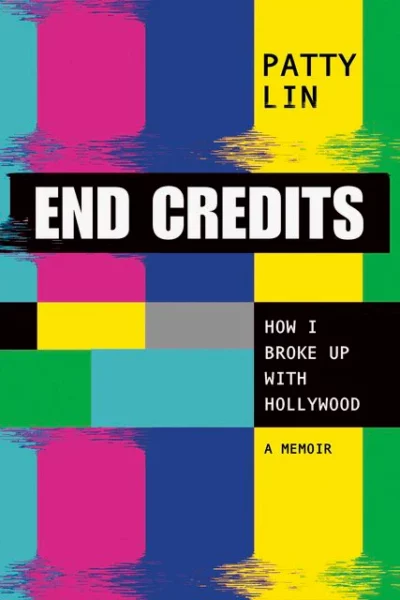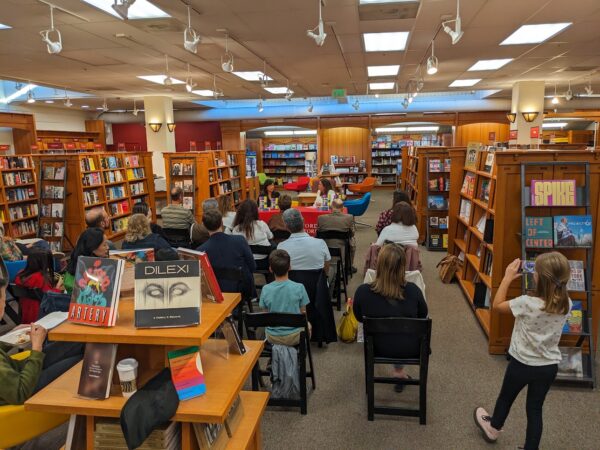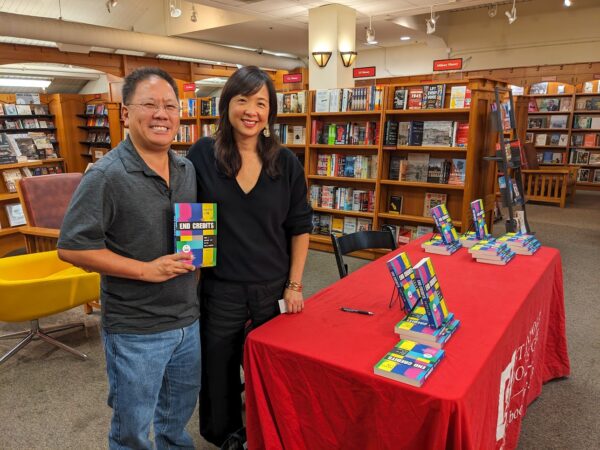 I’m not sure how I first came across End Credits – How I Broke Up With Hollywood, A Memoir by Patty Lin. I think I saw a post on Facebook and then became excited once I knew that Lin was a fellow Cornell University alumna. I later found out that we were the same graduating class! I was even more excited that once I learned that Lin would be speaking at the Stanford Bookstore in September. At that talk, I was able to meet her in person and buy an autographed copy of her book.
I’m not sure how I first came across End Credits – How I Broke Up With Hollywood, A Memoir by Patty Lin. I think I saw a post on Facebook and then became excited once I knew that Lin was a fellow Cornell University alumna. I later found out that we were the same graduating class! I was even more excited that once I learned that Lin would be speaking at the Stanford Bookstore in September. At that talk, I was able to meet her in person and buy an autographed copy of her book.
From the publisher’s official website of the memoir:
“A candid and revealing look at life in television, Hollywood, and work in the writer’s room, from an insider who wrote for some of the most popular television shows in history: Friends, Desperate Housewives, and Breaking Bad.”
I enjoyed reading the memoir. It was interesting to learn about the dysfunctional entertainment industry, at least for writers. Lin also often describes experiencing imposter syndrome, especially being usually the only woman and/or person of color in the writing room.
My first job out of college was in Connecticut, near where I grew up in Western Massachusetts. In a department of about 45 engineers and draftsmen, I was the only non-white person and everyone was 15 to 30 years older than me. I don’t think I felt the constant imposter syndrome that Patty felt, though I did feel inexperienced. It was clear from the writing roles she received as well as just reading her memoir, she definitely has writing talent.
While it is heartbreaking to read about ignorance of the entertainment industry, it is equally heartbreaking to experience the disappointment of her immigrant Taiwanese parents:
“I burst into hot, furious tears. My own mother was ashamed of me. She cared more about what her friends thought of me than about my well-being – and my failures had ruined her Norweigian cruise. The Taiwanese immigrant community could be brutally competitive, and my mom had always compared me to her friends’ kids. Back in Downers Grove, we used to participate in an annual Taiwanese bazaar, and one year a bunch of us girls were recruited to do a folk-dance number. I remember the look of pride on my mother’s face when all the other moms remarked on how I had the best-looking braids, smiled the most, and knew the dance steps better than the other girls. Well, times had changed. Those girls had gone to medical school or were now married with babies. I was no longer coming out ahead.”
Having majored in mechanical engineering and later getting an MBA, I never experienced such parental disappointment, but the above paragraph did remind me of an aunt of mine who would be just like Patty’s mom – always talking about other Taiwanese families’ kids.
It’s been well over a decade since Patty left television writing, and I do wonder how much has changed. Her book reminded me of this moment when Alan Yang at the Emmys upon receiving one had pleaded:
“If just a couple of you get your kids cameras instead of violins,” he said, gleaming statuette in hand, “we’ll be all good.”
There’s definitely a lot of truth to that. It’s also no surprise given the initial Asian immigration patterns since the mid-1960s, that a lot of immigrants came from STEM backgrounds, either from Taiwan in the 1960s, 70s or from India in the 2000s and beyond.
I don’t think I would have had to personality to experience the capricious nature of unstable employment in Hollywood. Then again, I have had my own ups and downs in the tech industry in Silicon Valley.
During the Q&A as well as my brief conversation with Patty, from what her friends and former colleagues tell her, it doesn’t seem like the television/entertainment industry has improved much. And in fact, has gotten a lot harder due to the advent of streaming, which are shorter seasons with fewer episodes and no residuals (major motivations for the writers strike). If you’re at all interested in being a television writer or working in the U.S. entertainment industry or reading about an Asian American’s perspective on a “non-traditional” career, I highly recommend the book. It’s an easy read and entertaining and certainly made me think of my own career choices. In another lifetime, I think I would have tried film school – but that’s for another blog post for another day…










